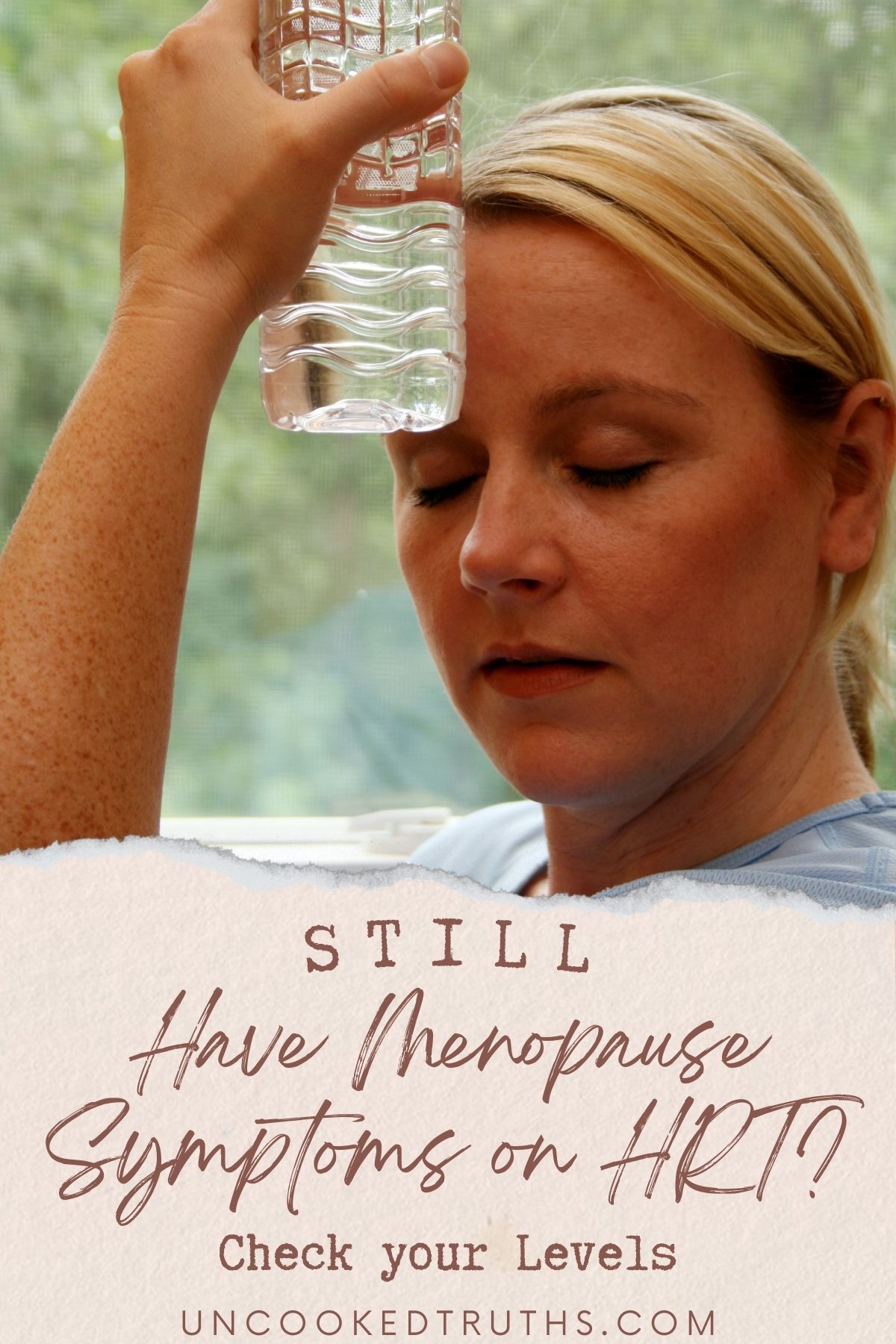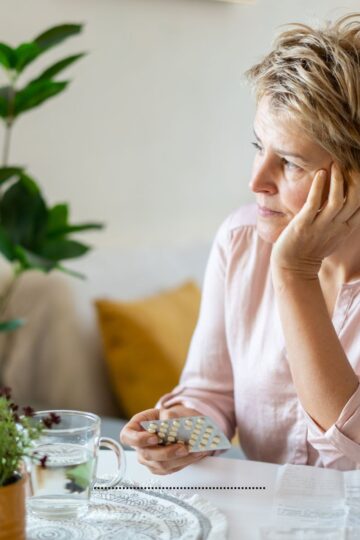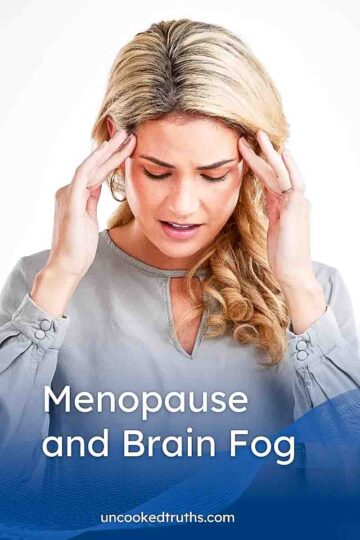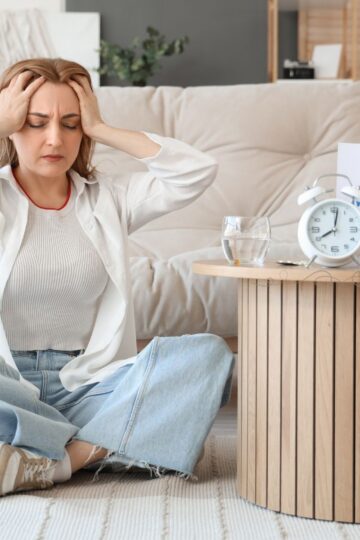No one tells you what hormone replacement therapy is actually supposed to do, beyond vague promises to ease hot flashes or help you sleep. But what if you're still dealing with symptoms even while on it? And what if you're taking the "standard" dose but still not getting real protection for your bones, brain, or heart?

Jump to:
This is an article about my personal experience navigating HRT as a midlife woman who had to do her own research, advocate for herself, and push back when the standard approach just wasn’t enough. I’m not a doctor. I’m a patient who learned the hard way what no one was willing to explain to me clearly: that there is such a thing as being undertreated, and most of us never even know it.
I didn’t start hormone replacement therapy because I was bored or curious. I started because my body was breaking down, quietly at first, then louder every year. Hot flashes. Brain fog. Bleeding. Insomnia. Panic. And always, the unshakable sense that I was running on fumes.
Read: Is This Normal?” And Other Midlife Body Mysteries
So I did what we’re told to do. I asked for help.
I started with one spray of Lenzetto (the estradiol transdermal spray available in Europe, similar to Evamist in the U.S.), because that’s what the doctor recommended. But when it wasn’t enough, I was told not to go over two sprays, because, according to that doctor, anything more would be dangerous unless I’d had my ovaries surgically removed. In other words, if I were in 'natural' menopause, I wasn’t allowed to get proper relief.
Meanwhile, I was absolutely dying of hot flashes, and two sprays weren’t doing anything. When I pushed back, I was told to "see how I feel." And when I still didn’t feel right? I was told to wait. Maybe try another spray. Maybe not. Everyone is different.
No one told me what my estradiol level should be.
Not one doctor. Not the pharmacist. Not the specialist I paid out of pocket to see. Just a vague shrug of “we don’t monitor blood levels,” followed by “let’s keep it low, just to be safe.” But safe from what?
You see, most doctors aren't trained in menopause, so they're navigating it just like we are, with limited tools and even less support. I cannot even call it malicious gaslighting, as they receive no menopause training in medical school or continuous education.
Doctors often prescribe a “standard” hormone dose, assuming it fits most women, but individual needs vary. Monitoring hormone levels requires more effort, so many patients don’t get personalized adjustments, even when the standard dose isn’t enough.
What Happens When Estrogen Still Feels... Low
After I moved to another country, I told the new doctor that the Lenzetto spray just wasn’t helping me. She actually listened. She checked my bloodwork, and the levels were very low; she looked at my symptoms and started adjusting my dose accordingly. We worked closely together, and to her credit, she was open to learn from what I was bringing to the table, research articles or books.
However, in the process, she changed my treatment from spray to estradiol patch.
I went from one spray of Lenzetto (Evamist) to a 50 mcg patch. Then 75 mcg. Then, finally, 100 mcg. I needed every single step of that climb. And even now, on 100 mcg, I still get cold chills and the occasional hot flash. It’s not perfect. But it’s the closest I’ve felt to myself in years.
For months, I thought the problem was absorption. Maybe my skin wasn’t taking it in. Maybe it was my patch placement. Maybe I was just broken. But nothing seemed to make sense. The dose was increasing, but my symptoms weren’t going away. That’s not just frustrating; and it is also not therapeutic.
Why I Started Looking Into Estradiol Blood Levels
I never wanted to become a hormone detective. We are taught that doctors know the best, so we should never challenge them. But when your doctors don’t have answers and your symptoms keep shouting, you have two choices: suffer in silence, or figure it out yourself.
I started reading. Research papers. Forums. Articles and studies I could barely understand at first. And I found something that made me angry:
The research on estradiol optimal level exists.
Some studies show vasomotor symptoms (hot flashes, chills, etc.) improve significantly when estradiol blood levels hit 60 pg/mL. Others show that bone health improves when you reach 65+. Some trials on oral estradiol doses show cardiovascular protection when levels reach 100 pg/mL or more.
But no one talks about this. And most women, like me, are never told to check or ask for them.
Read: Understanding hormone levels in your blood
If I’m Taking Hormones, I Want the Full Benefit, Not Just a Placebo
I didn’t go on HRT to “kind of” feel better. I went on HRT to protect my bones, my brain, my heart, and yes, to function like a normal adult again.
But the advice I got was always the same: lowest dose, shortest time. What are we trying to achieve with that? Would you believe your doctor if they said:
- “Just take two steps a month, and that’s your exercise.”
- “One broccoli floret every 30 days should cover your vegetable intake.”
- “Here’s 1/10th of your blood pressure pill. Let’s hope it works.”
Of course not. We all know better. In every other area of medicine, the goal is to reach a therapeutic range. Not too much, not too little, just enough to work. Except in menopause, where women are told to accept crumbs and be grateful.
I don’t want crumbs. I want consistency. I want real symptom relief. I want protection from osteoporosis and heart disease. I want my brain to stay sharp. Is that too much to ask?
Read more: Why Is Menopause Hormone Therapy Treated Like a Dirty Word?
Why 'Standard Dosing' Doesn’t Work for Everyone
Lower to medium doses of estradiol patches felt unstable. Doctors called these doses "standard." But what does that even mean if my symptoms are still showing up and my body is starved of estrogen and demands more?
Only when I reached 100 mcg, things start to shift. I also had to increase my progesterone to match the estrogen for uterine protection. At one point, I was also prescribed testosterone, but it wasn’t the main issue. The bigger challenge was getting enough estrogen in the first place.
Even now, I still occasionally get symptoms, and I sometimes wonder if I’m still not quite where I need to be. But it’s significantly better than where I started, and that progress only came because I questioned the so-called standard. I might need more, and I really hope I will get to the point where my symptoms disappear.
This isn’t about stacking hormones for fun. It’s about finding the right dose for me, not the most convenient dose for the doctor to prescribe.
Read: HRT doses explained
What I Wish I Knew Sooner
- You can be on HRT and still be undertreated.
- You can have patches, pills, or sprays, and still have low serum estradiol. It is all about levels and your skin absorption.
- Symptoms matter. But so do numbers. Why not look at both?
- There’s a difference between hormone replacement and hormone supplementation. If you’re missing estrogen, the goal is to replace it, not sprinkle a little and hope for the best.
My Advice to Other Women Like Me
If you’re on HRT and still struggling, you’re not the problem. You’re not too picky. You’re not being dramatic. You might simply not be getting enough.
Ask for labs, not because numbers are everything, but because they tell part of the story. Ask what range your treatment is likely producing. Ask if your FSH is still high (which may indicate your body is still begging for more estrogen).
FSH, or follicle-stimulating hormone, typically rises in menopause because your body is trying to get your ovaries to respond, and failing. If your FSH stays high even on HRT, it can be a sign you’re not getting enough estrogen. Suppressing FSH isn't the only goal, but it’s a clue that can help you and your doctor adjust your treatment more effectively.
You deserve clarity. You deserve to feel good, not just "better than nothing." This is your body. Your health. Your life.
This article reflects my own experience as a patient. I’ve learned to ask better questions, challenge one-size-fits-all advice, and trust what my body is telling me. I hope it encourages you to do the same.
I’m not a doctor. I’m just a woman who decided to stop suffering in silence. And maybe that’s what we all need to start doing. Together.
More Readings
- Menopause Support for Husbands: What You Need to Know
- Hormone Therapy and Mounjaro: Finding Balance in Midlife
- Menopause in the Workplace: Impact and Solutions
- The Many Faces of Menopause: Symptoms No One Warned You About
- Menopause and Brain Fog: Why I Felt Like I Was Losing My Mind






Leave a Reply